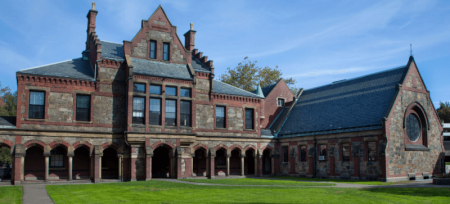Influential Episcopal Seminary No Longer Offering Degrees Amid Report of $7.9 Million Loss in Net Assets

An influential seminary affiliated with The Episcopal Church has announced that it will no longer issue degrees starting next year, and is reporting a net loss of $7.9 million in assets since last year.
The Episcopal Divinity School of Cambridge, Massachusetts, announced in July that they will stop granting degrees at the end of the 2016-2017 academic year.
Last week, the divinity school sent out an update to supporters and members of its campus community wherein they noted that the net assets of the seminary had declined rapidly over the past couple of years.
"At our meeting, we also accepted the 2016 audit report which contained the sobering news that EDS's net assets decreased by $7.9 million (11 percent) in the last fiscal year. This follows a decrease of nearly $6.5 million (8.5 percent) in 2015," noted the announcement.
"As the fiduciary stewards of EDS's assets and mission, we are obviously dismayed at the size of EDS's losses, but the news has redoubled our commitment to finding a more sustainable and prudent future for the seminary by the end of fiscal year 2017."
Signed by EDS Board of Trustees Chair the Rev. Gary Hall and Vice Chair Canon Bonnie Anderson, the message also noted that they were working on how to help the 23 students who will not be able to complete their degrees by next May complete their education.
"[W]e have asked [Interim EDS President Bill Nelsen] to develop memoranda of understanding with the Bexley Seabury Seminary Federation, which is housed at Chicago Theological Seminary, to complete the degrees of distributive learning students and with Boston University School of Theology to do the same for residential students," continued the message.
"These arrangements will ensure that students receive full credit for coursework completed and incur no additional costs. A number of the students included in the teach-out are international students, and EDS has retained an immigration lawyer to ensure that their visas are maintained in the transition."
A spokeswoman for the seminary provided The Christian Post with a statement from Hall on Tuesday noting that EDS plans to continue advancing its mission despite the current setbacks.
"Episcopal Divinity School and its predecessors, Philadelphia Divinity School and Episcopal Theological School, have helped form and carry out the Episcopal Church's commitment to Gospel justice," stated Hall.
"EDS will soon take on a different institutional structure, but the board of trustees is resolved that our historic mission and resolve to follow the liberating Christ will not change."
A theologically liberal seminary founded in 1974, Episcopal Divinity School has been dealing with financial troubles for years.
In March of 2008, Inside Higher Ed reported that EDS sold seven of their campus buildings to the non-sectarian Lesley University for approximately $33.5 million.
"Under the terms of the sale, announced Thursday, EDS will maintain ownership of 13 buildings," noted Inside Higher Ed.
"As part of the agreement, Lesley, which has already housed undergraduates on the seminary's campus under a leasing arrangement for about three years, will now own residence halls and a dining facility on EDS' grounds."
Jeff Walton, Anglican Program Director with the theologically conservative Institute on Religion & Democracy, told CP that EDS' plight was not unique among Mainline Protestant seminaries.
"Of the 10 institutions that educate students for ministry in the Episcopal Church, about half are experiencing significant financial stress," said Walton.
"These include EDS, General Theological Seminary, and Bexley-Seabury as the most vulnerable. Seminaries which serve the Episcopal Church are stuck in the same pattern of decline as the denomination itself: fewer churches, fewer members, fewer paid positions."
Walton also told CP that he believes in the near future "we can expect continued seminary consolidation and closure in the Episcopal Church, just as we have seen in the past year with the Evangelical Lutheran Church in America and the United Church of Christ."
"Schools emphasizing liberation theology and leftist political advocacy simply aren't attracting new students," said Walton.
"In contrast, the 10 largest seminaries in the country are evangelical, and many have successfully pivoted to accommodate distance learning and a greater percentage of part-time students."





















